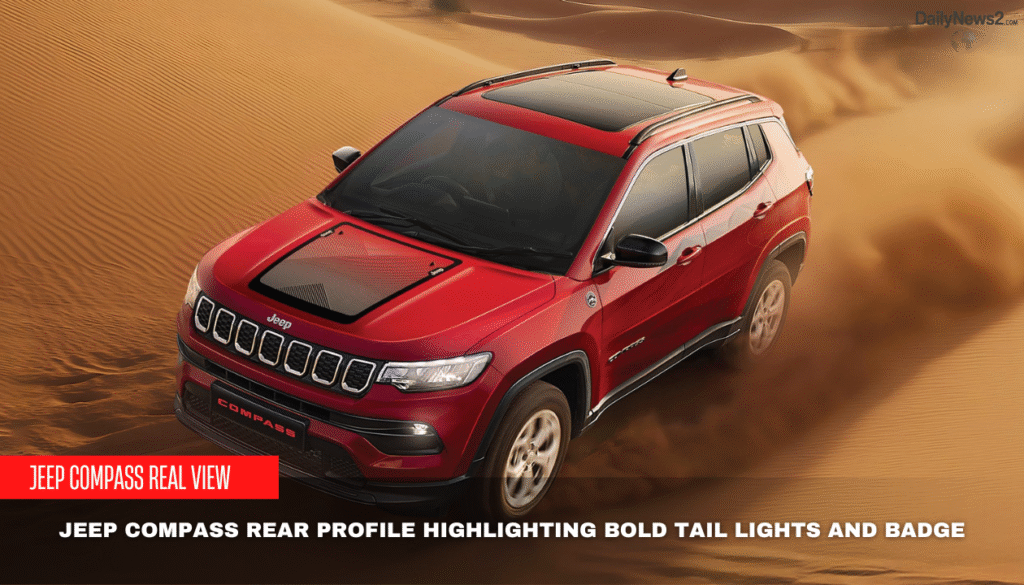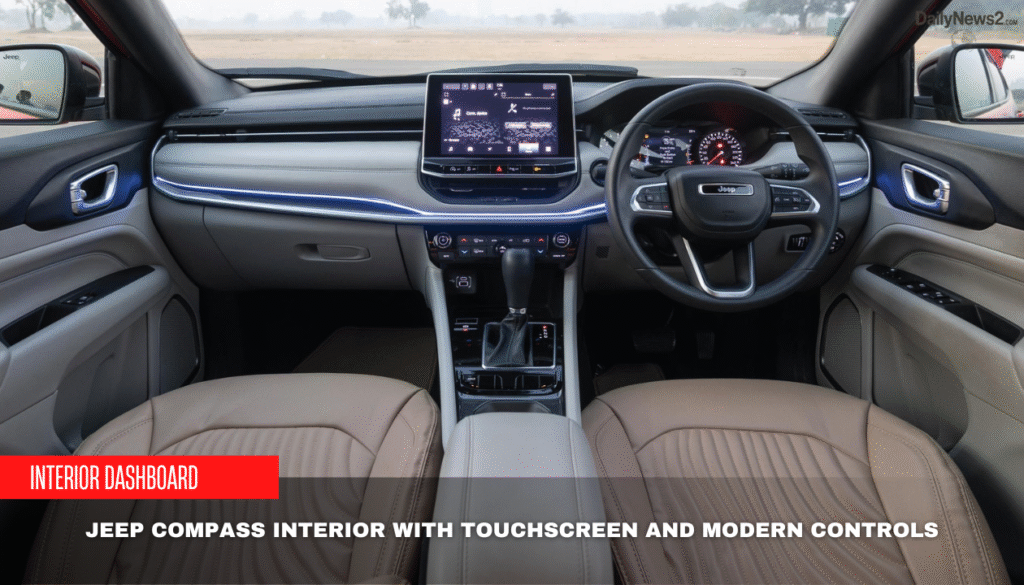Introduction

The Jeep Compass has long been celebrated as a rugged compact SUV offering solid off-road capability. Known for its four-wheel-drive (4WD) options and trail-ready performance, the Compass was a go-to choice for adventurous drivers. However, with the latest update to the gas-powered Compass, Jeep has made a bold move—offering it only in front-wheel drive (FWD). This decision has sparked a mix of curiosity, surprise, and even disappointment among Jeep loyalists.
So, what’s behind this major shift? Let’s explore the reasoning, pros and cons, and what this change means for buyers and the brand.
The Evolution of the Jeep Compass
From Off-Road Icon to Urban Utility
The Jeep Compass made its debut in 2007 as a more compact and urban-friendly SUV compared to the likes of the Wrangler or Grand Cherokee. Over the years, it balanced rugged styling with daily drivability, appealing to both off-road enthusiasts and city dwellers.
While 4WD remained an important part of its identity, especially in trims like the Trailhawk, Jeep also offered front-wheel-drive variants to attract cost-conscious buyers.
A Shift in Focus: The 2025 Compass
The latest gas-powered model, however, marks a departure from this dual-approach. Jeep has eliminated all-wheel-drive options for the standard gas Compass, offering only front-wheel-drive as part of a strategic realignment of its lineup.
Why Jeep Went Front-Wheel Drive Only

1. Cost Efficiency
Switching to front-wheel drive helps reduce manufacturing and ownership costs. FWD systems are:
- Lighter and simpler than AWD/4WD
- More fuel-efficient
- Less expensive to build and maintain
This makes the Jeep Compass more affordable, which could attract a larger base of urban and suburban buyers.
2. Changing Market Demands
More than 80% of compact SUV buyers rarely, if ever, go off-road. Most prioritize:
- Comfort
- Fuel economy
- Urban drivability
- Lower maintenance
By focusing on FWD, Jeep is responding to how most Compass owners actually use their vehicles.
3. Electrification Strategy
Jeep has announced a major shift toward electrification, with several plug-in hybrids and all-electric models on the horizon. By keeping off-road capabilities in its electrified 4xe models, Jeep can streamline gas-powered trims for everyday use and save the rugged DNA for future electric variants.
Pros of the New FWD Jeep Compass

Better Fuel Economy
With a simpler drivetrain and lighter setup, the new Compass offers improved fuel efficiency—a major plus in today’s high-cost fuel market.
Lower Cost
The absence of complex 4WD components translates to a lower base price and reduced maintenance costs for buyers.
Smoother Ride for Urban Driving
FWD configurations generally offer better handling in paved city and suburban environments, which aligns with how most buyers use the Compass.
Cons of Dropping AWD/4WD
Reduced Off-Road Capability
Jeep has built its brand on ruggedness, and removing 4WD from the gas Compass trims dilutes the off-road appeal.
Weather Performance Concerns
In regions with heavy snow or rain, all-wheel drive is often seen as a necessity. Some buyers may now look elsewhere for a more weather-ready SUV.
Brand Identity Questions
Some long-time Jeep fans view the move as a betrayal of the brand’s off-road heritage, which could impact buyer perception and loyalty.
What This Means for Buyers

If you’re looking for a stylish, comfortable, and efficient compact SUV for daily commutes and weekend trips, the new Jeep Compass still offers plenty of value. It retains key features like:
- Uconnect infotainment system
- Safety tech like lane assist and adaptive cruise control
- Signature Jeep styling
However, if off-road ability or AWD is a priority, you’ll need to consider the Compass 4xe plug-in hybrid or look at other models like the Jeep Cherokee or Subaru Forester AWD.
Conclusion
The decision to make the gas Jeep Compass front-wheel drive only represents a strategic shift rather than a misstep. It’s a clear move to align the Compass with mainstream buyer preferences and prepare Jeep’s lineup for an electrified future.
While this may come as a surprise to purists, it makes practical sense for a large portion of the market. As long as Jeep continues to deliver off-road prowess in other trims and models, the Compass can confidently serve its new role as a stylish, efficient, and city-ready compact SUV.





